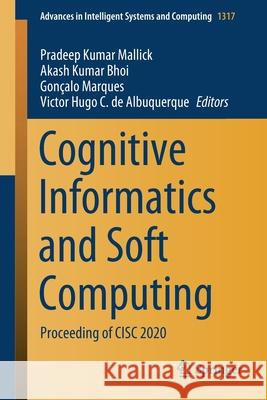Cognitive Informatics and Soft Computing: Proceeding of CISC 2020 » książka
topmenu
Cognitive Informatics and Soft Computing: Proceeding of CISC 2020
ISBN-13: 9789811610554 / Angielski / Miękka / 2021 / 983 str.
Kategorie:
Kategorie BISAC:
Wydawca:
Springer
Seria wydawnicza:
Język:
Angielski
ISBN-13:
9789811610554
Rok wydania:
2021
Wydanie:
2021
Numer serii:
000453356
Ilość stron:
983
Waga:
1.36 kg
Wymiary:
23.39 x 15.6 x 5.0
Oprawa:
Miękka
Wolumenów:
01
Dodatkowe informacje:
Wydanie ilustrowane











